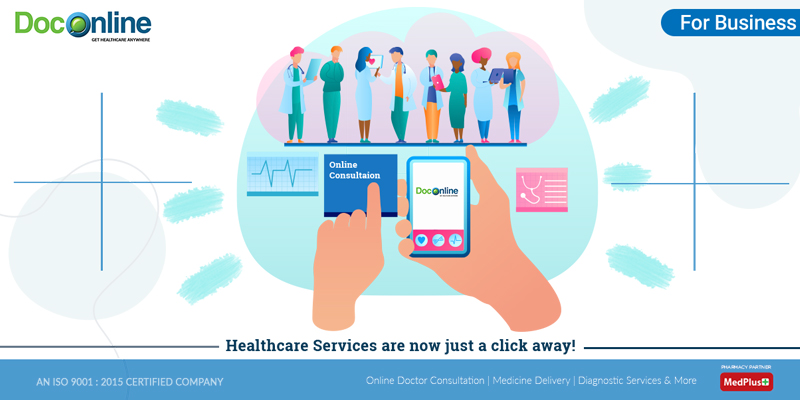Subscription Based Healthcare: Transforming the Means We Consider Health
Subscription Based Healthcare: Transforming the Means We Consider Health
Blog Article
How Subscription-Based Healthcare Is Changing the Medical Industry

The Surge of Membership Medical Care
In recent times, the health care sector has seen a substantial shift towards subscription-based models, reflecting broader customer trends favoring benefit and predictability. This transformation is driven by the raising need for more available and individualized care solutions. Membership health care, sometimes referred to as attendant medicine or direct health care, uses clients a fixed regular monthly cost for a variety of clinical solutions, significantly altering traditional fee-for-service versions.
The rise of subscription health care is helped with by advancements in modern technology, which enable streamlined interaction between providers and people - subscription based healthcare. Digital systems and telehealth services have actually become integral, supplying clients the capacity to arrange appointments, gain access to medical documents, and obtain appointments online. This technological assimilation not only enhances patient interaction but likewise enables service providers to supply much more reliable care
Moreover, the registration model aligns with the developing expectations of people that seek even more control over their health care expenditures and experiences. While this version is acquiring traction, its proliferation deals with difficulties such as regulative difficulties and the necessity for broader approval within the traditional medical care environment.
Benefits for Service Providers and patients
Subscription-based health care offers a plethora of benefits for both carriers and individuals, reshaping the dynamics of clinical care. For people, this version gives boosted accessibility to medical care services. With a predictable regular monthly cost, individuals can delight in unlimited appointments, reduced wait times, and customized care. This plan typically brings about an extra positive method to health and wellness monitoring, enabling prompt interventions that can prevent chronic problems from intensifying. The financial transparency of membership versions decreases the changability connected with standard fee-for-service invoicing, reducing the concern of unanticipated clinical expenses.
For healthcare providers, subscription-based models promote an even more lasting and rewarding technique. Management tasks are usually structured, decreasing above expenses and enabling companies to devote more time to person communication. In general, subscription-based health care straightens the motivations of service providers and patients, advertising an extra patient-centered and effective medical care shipment system.
Key Features of the Version
Often, the crucial functions of the subscription-based healthcare design highlight its unique method to providing medical solutions. Central to this model is the concept of predictable, monthly payments, offering patients a detailed series of services without the unpredictability of traditional fee-for-service frameworks. This design commonly includes unlimited access to health care services, preventive care, and routine check-ups, ensuring that clients can engage with their healthcare suppliers proactively as opposed to reactively.
Furthermore, direct communication networks, such as telemedicine and messaging systems, are emphasized, allowing patients to receive timely suggestions and examinations without requiring in-person visits. This improves access and convenience, specifically for people with wheelchair constraints or those residing in remote areas. The version additionally cultivates stronger doctor-patient partnerships, as health care suppliers are incentivized to concentrate on long-term wellness end results rather than short-term check outs.
Additionally, subscription-based healthcare typically incorporates technical innovations, such as electronic health records and health surveillance applications, to supply reliable and tailored care. Patients take advantage of coordinated and continual treatment administration, which is customized to their particular health demands. Eventually, these attributes collectively produce a patient-centered medical care experience, focusing on ease of access, cost transparency, and preventive care.

Factors To Consider and challenges
While the you could try here subscription-based medical care design uses numerous advantages, it is not without its considerations and difficulties. Registration models may accidentally favor those with higher socioeconomic condition, possibly broadening disparities in medical care access for lower-income individuals that might struggle with month-to-month costs.
An additional difficulty hinges on regulative conformity. Subscription-based health care has to browse a complicated internet of laws that differ by area, consisting of issues around individual discretion, data protection, and state licensing requirements. Ensuring conformity without impeding the model's versatility and advancement can be daunting for carriers.
In addition, there is the threat of overutilization or underutilization of solutions. Clients paying a taken care of cost may overuse solutions, causing enhanced functional expenses, while others might underutilize due to fear of straining the system, possibly ignoring required care.
Future Prospects and Innovations
The landscape of subscription-based health care is positioned for transformation via emerging developments and evolving prospects. As modern technology continues to development, the combination of man-made knowledge and artificial intelligence provides considerable opportunities to enhance diagnostic precision and enhance client administration. Anticipating analytics can reinvent preventive treatment by determining possible health and wellness dangers prior to they materialize, thereby minimizing both expenses and the burden on medical care systems.
Furthermore, telemedicine is readied to broaden within subscription versions, offering clients increased access to healthcare experts despite geographical restrictions. This not only facilitates continuity of treatment but likewise empowers clients to involve more actively in their wellness monitoring. Furthermore, blockchain technology uses potential in protecting individual data and making certain interoperability across systems, cultivating count on and transparency.
The advancement of tailored medicine is one more frontier, with membership models offering a special structure for supplying tailored health and wellness options. Hereditary testing and personalized treatment strategies can be seamlessly integrated, lining up client needs with details clinical treatments. Collaborations between tech companies and healthcare carriers are most likely to generate cutting-edge services, enhancing client experiences and end results. As these leads emerge, subscription-based healthcare has the possible to redefine exactly how care is delivered and accessed.
Final Thought
Subscription-based health care is transforming the clinical industry by supplying an extra obtainable, predictable, and patient-centered approach to medical services. This version boosts patient-provider relationships, makes certain monetary transparency, and highlights precautionary care via unrestricted this page consultations and telemedicine. Regardless of challenges such as governing obstacles and possible variations in gain access to, the subscription version holds guarantee for a more efficient and tailored health care experience. As innovation advancements, further technologies are likely to resolve existing challenges and optimize medical care delivery.
Registration health care, often referred to as concierge medicine or straight key care, uses patients a fixed regular monthly charge for an array of clinical services, considerably altering traditional fee-for-service models.
In addition, the subscription model straightens with the evolving assumptions of visit this site individuals that look for even more control over their healthcare expenses and experiences. For clients, this design offers improved accessibility to health care solutions. Generally, subscription-based medical care lines up the incentives of service providers and clients, advertising a much more patient-centered and reliable health care delivery system.
Furthermore, telemedicine is set to expand within subscription models, offering people raised access to medical care experts regardless of geographical restrictions. - subscription based healthcare
Report this page